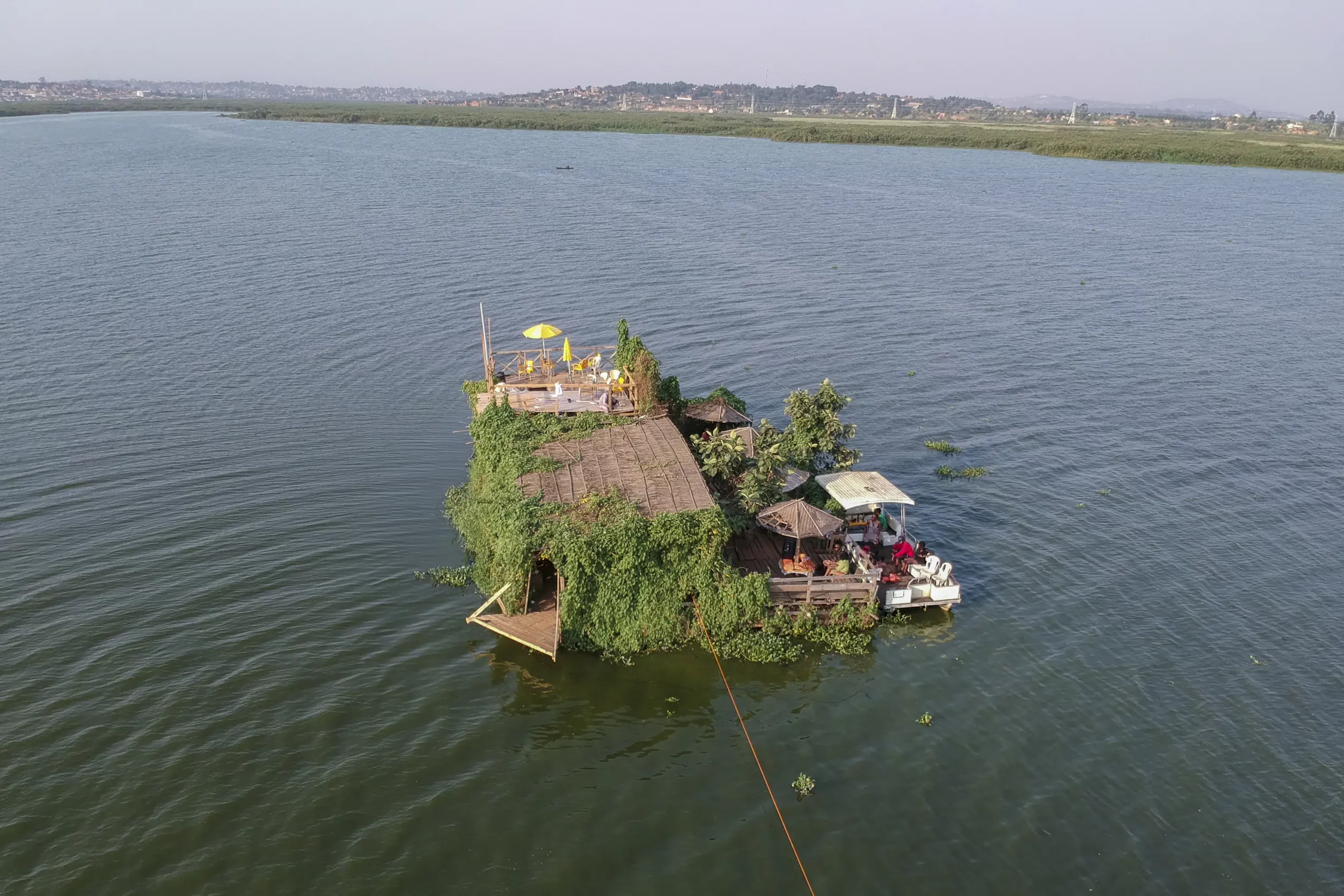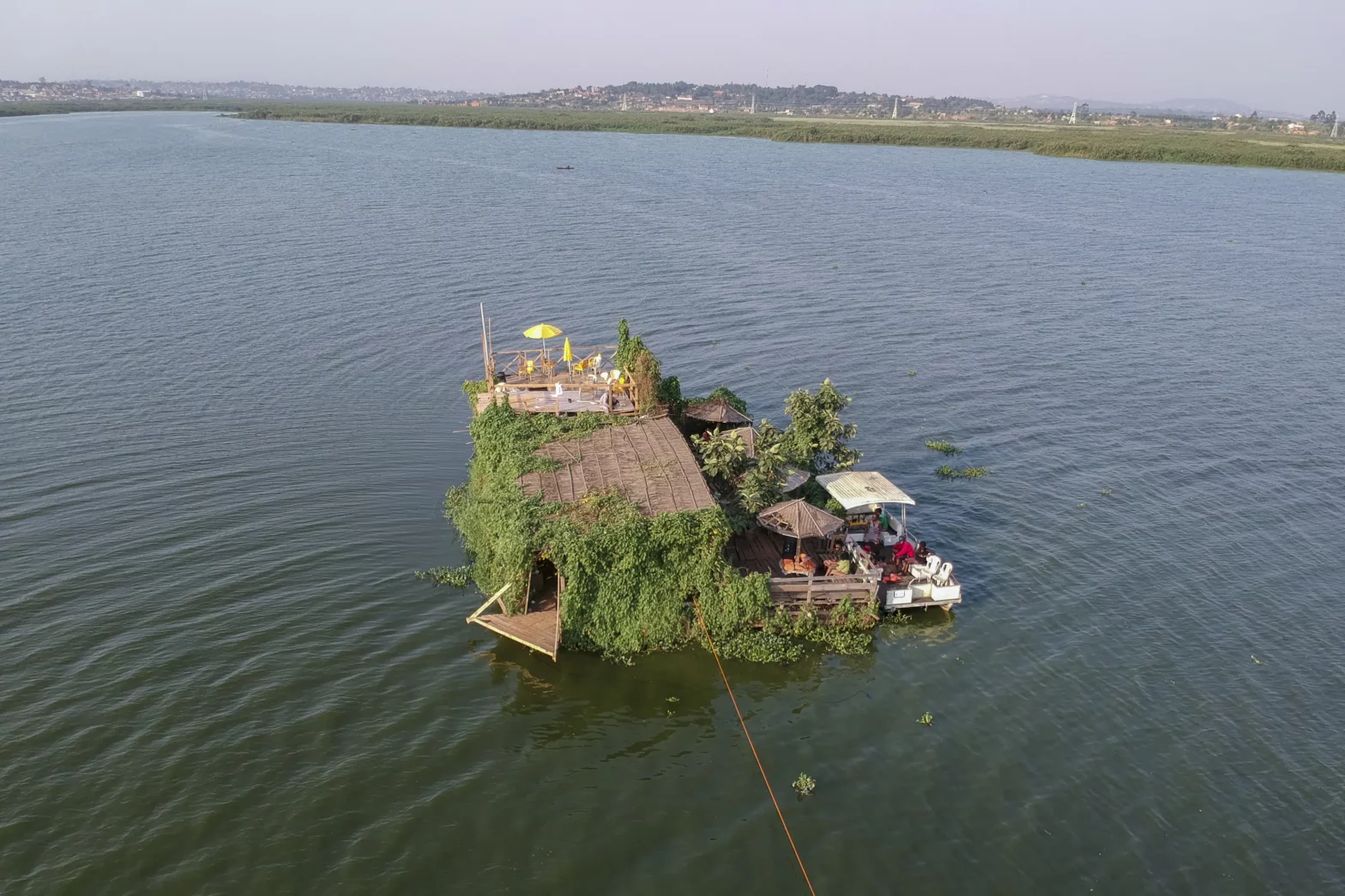
LUZIRA, Uganda (AP) — Flowering plants rise as if by magic from Lake Victoria onto a wooden boat, giving it a leafy ambiance that enchants many visitors.
The initial attraction becomes more compelling when tourists to Uganda learn that the greenery emerges from an innovative recycling project which uses thousands of dirt-encrusted plastic bottles to anchor the boat.
Former tour guide James Kateeba started building the boat in 2017 in response to the tons of plastic waste he saw in the lake after heavy rains. He realized the vessel could serve as an example of a sustainable business on the shores of Lake Victoria: a floating restaurant and bar that could be unmoored to drift for pleasure.
Many who come to relax here in Luzira, a lakeside suburb of Uganda’s capital, Kampala, know nothing of the boat’s backstory. Kateeba insists it’s first and foremost “a conservation effort,” one man’s attempt to protect one of Africa’s great lakes from degradation.
ADVERTISEMENT
Lake Victoria is the world’s second-largest freshwater lake and spans three countries. Yet it is plagued by runoff waste and other pollution, sand mining and a decline in water levels due in part to climate change.
Layers of plastic waste float near some beaches during the rainy season, a visible sign of the pollution that’s a worry for fishing communities heavily dependent on the lake.
“The fact that we had a problem of pollution as a country … I decided to design something out of the ordinary,” Kateeba said, surveying the lake horizon tinged with a green substance that indicates contaminants from a nearby brewery.
He started by asking fishermen from nearby landing sites to collect plastic bottles for a small fee. He received more than 10 tons of bottles within six months. Batches were tied up in fishing nets and daubed with solid dirt, creating the firm bases upon which the boat is moored and that are also fertile ground for climbing tropical plants.
Today, the boat, marketed as the Floating Island, can comfortably serve 100 visitors at a time, Kateeba said.
“This is morning glory,” he said proudly, caressing a vibrant flowering vine one recent afternoon as he prepared to unmoor the boat for the enjoyment of his customers. Elsewhere on the boat, a group of TikToking teenagers danced. Upstairs, a carpenter was building a new wooden sun deck.
ADVERTISEMENT
Jaro Matusiewicz, a businessman visiting from Greece, said he had “never seen a place like this,” praising the boat’s “accommodative” atmosphere as he dug into fish and chips.
“This is a very good idea,” he said. “If he’s collecting the bottles and using them, it’s fantastic! … You are not only cleaning the environment but also providing something unique, very unique.”
A similar project was launched in 2018 on the beaches of Kenya, where a small boat, known as the Flipflopi, was built entirely from recycled plastic that once littered sandy shores and towns along the Indian Ocean.
In 2021 the Flipflopi went on a voyage on Lake Victoria “to raise awareness of the pollution plaguing the region’s most critical freshwater ecosystem, ” according to the United Nations Environment Programme.
ADVERTISEMENT
Kateeba said he hopes his boat is exemplary.
“I am sure, with some bit of experience that we gain from this, we should be able to encourage other people to design things,” he said. “Other methods, not necessarily this type … of trying to deal with plastic pollution on Lake Victoria.”
___
Follow AP’s coverage of climate and environment issues: https://apnews.com/hub/climate-and-environment

